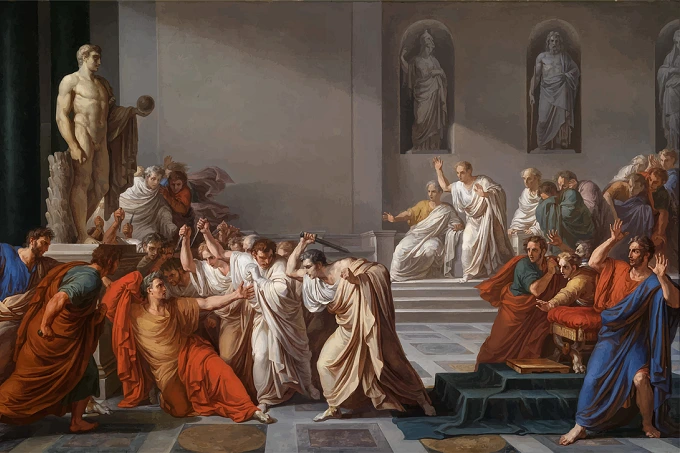Top 5 perplexing ancient Rome prohibitions

Some people think of the ancient culture of the Eternal City when they hear the term “ancient Rome,” while others think of the violent orgies and depravity that the people of Ancient Rome were known for.
If we look at the laws of the Romans, we find that along with humanistic dogmas, they also issued restrictions that, to put it bluntly, a contemporary layman may find to be perplexing. These rules were part of the Roman legal system.
1. Ban on taking one’s own life

There was a law against taking one’s own life in ancient Rome. A person was not permitted to end his own life in such a straightforward manner. In order to accomplish this goal, he was required to present a petition to the Senate and provide an explanation of the motivations for his wish inside the document. If their arguments proved persuasive, the petitioner was granted permission to commit suicide and given a vial of poison to use in the process.
2. Quiet your sobbing

Funerary rituals in ancient Rome were known for their high levels of activity. Songs and dances were performed while the corpse of the dead was being removed from the building. Actors enacted comedic episodes from the life of the person who had passed away, while ladies who had been specifically recruited for the role performed stormy groans.
In their state of hysteria, they wailed, ripped their hair out, and even scraped their faces. In the end, someone had enough of these ladies, and sobbing at a funeral became a social faux pas that everyone was expected to avoid.
3. Outlawing sexual misconduct between married women

The patriarchal way of life in Roman culture was clearly represented in the laws of that time period, particularly with regard to the consequences of adultery. If a man discovered that his wife was having sexual relations with another man, he was required to lock the doors and go after the neighbors to verify that the infidelity was really a sign of treason.
After that, there was a breakup in the relationship. If the partner’s lover did not have the good fortune to be an actor or a freedman, the enraged husband had the legal right to murder him without fear of repercussions. The unofficial cavalier that belonged to the daughter experienced the same issue. In addition to that, the irate father tore into him in front of no witnesses.
It is strange that under Roman law, spouses who had links with visiting actresses, prostitutes, or mistresses were not penalised in any manner for their relationships with those women.
4. Prohibition against priestesses of love having dark hair color

In ancient Rome, women who served as priestesses of love were not allowed to have brown or dark brown hair. When Roman armies marched back to their capital cities after a war, they often took prisoners with them. Their destinies were already decided for them: they would either become slaves or prostitutes.
Given that the majority of the prisoners were from European nations, it is not surprising that many of them had red or light blond hair. In the end, an edict was made requiring all priestesses of love to dye their hair in vivid colors to differentiate themselves from respectable brunette Roman women. This was done so that they would not be mistaken for ordinary Roman women.
5. Ban on luxury

It’s possible that everyone has heard at least a little bit about the wild parties and never-ending feasts that Roman Emperor Nero hosted. However, there existed a statute in Rome that regulated the excessive luxury that might be seen in day-to-day living a few decades before his reign. Even the Gaius Orchid legislation, which was enacted in 181 BC, which limited the acceptable number of visitors and the maximum amount that may be spent on delicacies, was approved at that time.
It was forbidden for Romans to entertain more than three guests throughout the week, but they might have up to five guests on market days and holidays. In addition, the regulations that restricted excessive luxury stipulated the maximum number of utensils that a person was permitted to have in their house. The Romans made an effort to restrict the amount of money spent on food.
Following Nero’s rise to power, these restrictions were eventually relaxed. The name Nero, which was given to an ancient Roman emperor, has been passed down down the ages and has come to be associated with terror, anarchy, and dread.




